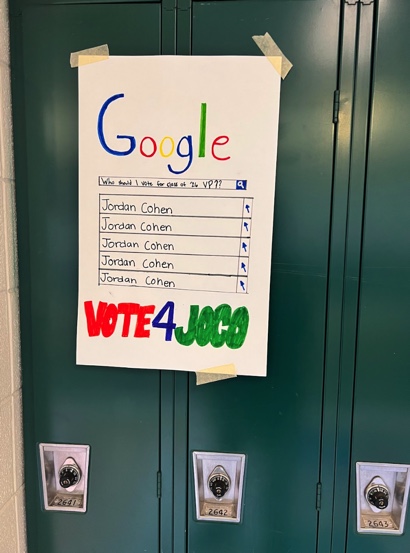Class elections: Should students have a say?

Election posters have been put up across WCHS’ hallways in recent weeks, as student government elections start at the end of the school year.
June 6, 2023
At the end of every school year comes arguably one of the most interactive school-wide events for students: student elections. Plastered across the school’s walls, dozens of posters advertise candidates, make campaign promises and encourage electoral participation. However, school-wide elections at WCHS and other schools have long suffered from voter apathy, with many questioning what student government bodies even do.
“I don’t know what they do, what power they have or what influence they have. It’s kind of like a popularity contest. It looks good on a college resume,” WCHS junior Jackson Koslow said. “People don’t know what they’re voting for. If they went out of their way to explain what they’re going to do for you as a student that would help.”
Student election campaigns often involve flashy posters and graphics that aim to attract attention, and with that, voters. However, there are students troubled by a lack of concrete policy or promises amongst the candidates’ advertising.
“They put posters up and basically said ‘vote for me’ and have catchy details and stuff,” Koslow said. “They didn’t go into specifics of what they were actually going to do, they just made flashy posters.”
A lack of knowledge about the candidates and their policies means that students are not as involved in the campaigns as they could be. Oftentimes, support for a candidate can simply be chalked up to friendship.
“Most people just [vote] for their friends, [or] who they know better,” Koslow said. “It’s not based on their policies, it’s based on who they like more and who they know better.”
WCHS junior Nathan Zeleke agrees, arguing that connections and influence is what determines who students vote for. However, he still believes integrity and policy plays a role in the campaigns.
“The main thing that [motivates] students to vote for their candidate basically revolves around influence,” Zeleke said. “It more revolves around friends and connections [but also] integrity and who has the most efficient policies, and what benefits the community the most.”
While Zeleke has confidence in the candidates, he does not have so much faith in voters themselves. With this in mind, he would rather not have elections in the first place.
“I think we should not have student elections because the voters aren’t mature enough,” Zeleke said. “They don’t know what it means to vote for a public position. Most people vote for their friends or who has the most connections.”
Charles Chen, a sophomore at WCHS, does not have much confidence in the candidates that run or those who win. He sees the elected student body as self-serving and incompetent. Despite this, he still believes that just the very act of voting gives students a voice.
“At the end of the day it’s my decision,” Chen said. “I feel like if I vote, my voice will be heard, [but] I expect the candidates to do stuff that not only benefits me [but] everyone in the school.”
Because of this, Chen disagrees with Zeleke’s distaste for student elections. He says that, despite his lack of confidence in candidates, schoolwide elections should still take place, and give students a chance to have their voices heard.
“I still believe that student elections are important, because we need someone to represent us as the people of the school,” Chen said. “It’s good for [someone] to represent all of our voices so that our problems can be heard.”


